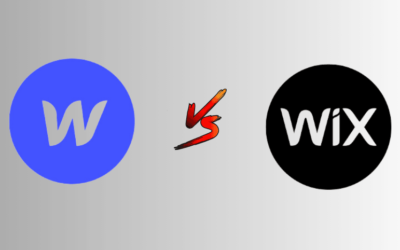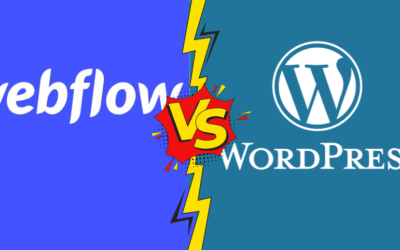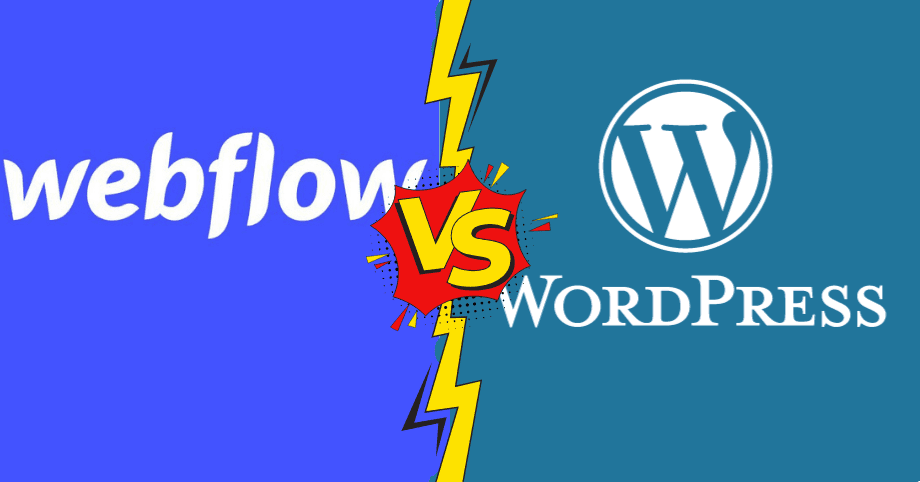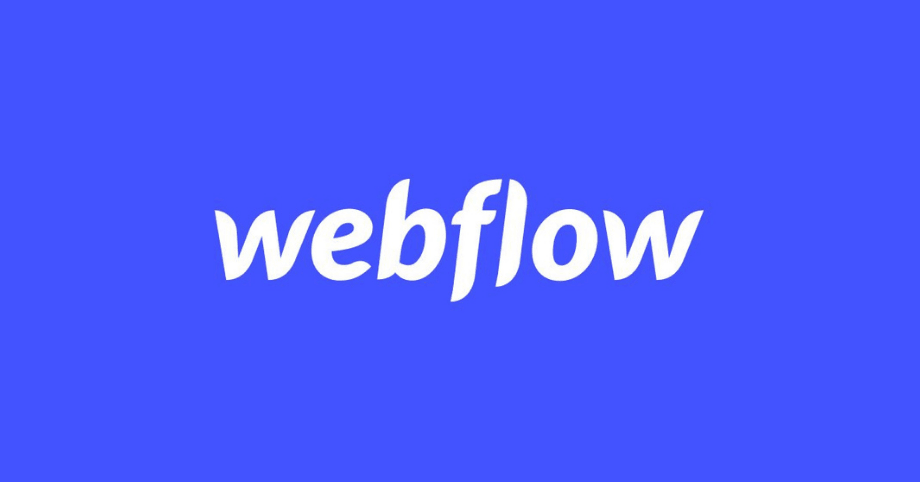Webflow vs Wix: Which One is Better for 2025?
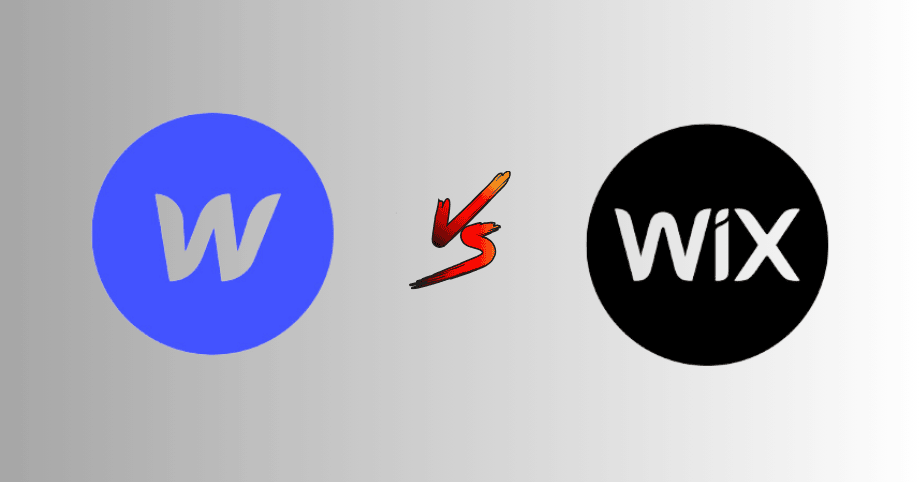
When it comes to building a website, choosing the right platform is a critical decision. Two of the most popular website builders, Webflow and Wix, have emerged as leading options for users ranging from beginners to professionals. But which one is better for 2025? Let’s dive deep into the features, usability, pricing, and overall capabilities of both platforms to help you decide.
What is Webflow?
Webflow is a robust website builder that combines the functionality of a traditional CMS with advanced design flexibility. It allows users to create highly customized and visually appealing websites without writing extensive code. Webflow is favored by designers and developers for its advanced capabilities and ability to produce pixel-perfect websites.
What is Wix?
Wix is a user-friendly drag-and-drop website builder designed for individuals and small businesses who want to create websites quickly and effortlessly. With its intuitive interface and hundreds of templates, Wix has gained immense popularity among beginners and small business owners.
Ease of Use: Webflow vs Wix
Webflow’s Learning Curve
Webflow is tailored for users who want full control over their website’s design and functionality. However, it has a steeper learning curve compared to Wix. Its design interface is similar to professional tools like Adobe Photoshop, which might feel overwhelming for beginners. On the plus side, once mastered, Webflow offers unparalleled creative freedom.
Wix’s Simplicity
Wix, on the other hand, is perfect for users with little to no technical expertise. Its drag-and-drop editor is intuitive, and users can build websites quickly without learning design principles or coding. Wix also offers a Wix ADI (Artificial Design Intelligence) feature, which can create a personalized website based on user preferences in minutes.
Verdict: If ease of use is your top priority, Wix is the clear winner.
Design Flexibility and Customization
Webflow’s Advanced Design Tools
Webflow shines in design flexibility. Its platform allows users to create intricate, professional-grade designs, complete with animations, responsive layouts, and custom interactions. With its visual canvas, designers can build and fine-tune every element of their site while maintaining clean, exportable code.
Wix’s Template-Based Approach
Wix provides a wide variety of pre-designed templates, but customization options are limited compared to Webflow. While you can tweak layouts and designs to an extent, Wix templates are less flexible, making it harder to achieve a truly unique look.
Verdict: For design flexibility and creative freedom, Webflow takes the lead.
Features and Integrations
Webflow’s Features
- CMS Integration: Webflow offers a powerful CMS that lets users manage dynamic content effortlessly.
- SEO Capabilities: Advanced SEO tools enable users to optimize meta tags, alt text, and site structure without third-party plugins.
- E-commerce: Webflow’s e-commerce platform supports complex stores with customizable checkout experiences and integrations.
- Hosting: Built on Amazon Web Services (AWS), Webflow provides fast, secure, and reliable hosting.
Wix’s Features
- App Market: Wix offers an extensive app marketplace, allowing users to integrate additional functionality like live chat, analytics, and email marketing.
- Wix SEO Wiz: A step-by-step SEO guide for beginners.
- E-commerce: Basic e-commerce features make it ideal for small businesses.
- Multilingual Sites: Wix supports multilingual website creation with ease.
Verdict: Webflow is better suited for advanced features and integrations, while Wix caters to basic needs.
SEO Capabilities
Webflow’s SEO Power
Webflow is known for its SEO-first approach. Users can customize URL structures, meta descriptions, open graph settings, and more. It also allows for fast-loading websites, an important ranking factor in 2025.
Wix’s SEO Tools
Wix has made significant improvements in its SEO tools over the years. Its Wix SEO Wiz guides users through basic optimization tasks. However, advanced SEO features like schema markup and custom 301 redirects are limited compared to Webflow.
Verdict: Webflow is the preferred platform for users prioritizing advanced SEO.
E-commerce Capabilities
Webflow for E-commerce
Webflow’s e-commerce platform is ideal for creating a highly customized online store. Users can tailor every aspect of their storefront, checkout process, and product pages. Webflow supports integrations with third-party tools like Zapier and Stripe, offering scalability for large businesses.
Wix for E-commerce
Wix’s e-commerce features are best suited for small businesses. It provides basic tools for setting up an online store, managing inventory, and accepting payments. However, it lacks the advanced customization capabilities that Webflow offers.
Verdict: For complex e-commerce needs, Webflow is superior. For simpler setups, Wix is sufficient.
Pricing Comparison
Webflow Pricing
Webflow operates on a tiered pricing model with plans for both general websites and e-commerce:
- Basic Plan: $18/month (billed annually)
- CMS Plan: $29/month (billed annually)
- Business Plan: $49/month (billed annually)
- E-commerce Plans: Start at $42/month
Wix Pricing
Wix offers competitive pricing with plans tailored for personal, business, and e-commerce websites:
- Combo Plan: $16/month
- Unlimited Plan: $22/month
- Business Basic: $27/month
- VIP Plan: $45/month
Verdict: Wix is more budget-friendly, especially for smaller websites.
Performance and Hosting
Webflow’s Hosting
Webflow’s hosting is fast, secure, and reliable, thanks to its integration with AWS and CDN. This ensures optimal site performance with minimal downtime.
Wix’s Hosting
Wix also provides free hosting with all plans, but its performance can vary depending on website traffic. While Wix is adequate for small-scale websites, it may not handle high-traffic sites as effectively as Webflow.
Verdict: Webflow offers better hosting performance for demanding projects.
Target Audience
- Webflow: Best suited for designers, developers, and businesses looking for advanced customization and scalability.
- Wix: Ideal for beginners, small business owners, and individuals seeking a straightforward website builder.
Conclusion: Which is Better for 2025?
Choosing between Webflow and Wix ultimately depends on your needs and goals. If you prioritize design flexibility, advanced features, and scalability, Webflow is the superior choice. Its no-code platform offers designers creative freedom and powerful customization, making it ideal for those looking to create unique, high-quality websites.
On the other hand, if you value ease of use, affordability, and quick setup, Wix is the better option. It’s perfect for users who need a fast, straightforward solution with a wide variety of templates.
Both platforms have their strengths, and the right choice depends on your goals, technical expertise, and budget. Kleverway, a Wix Website Development and Webflow Website Development company in Bangalore, can help you make an informed decision. Their team of experts ensures you select the best platform for your business needs, helping you create a website that aligns with your vision and objectives.



